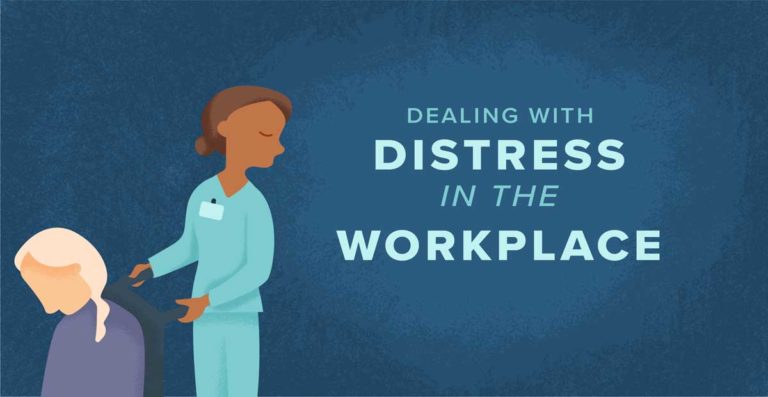Life isn’t easy when you’re a nurse. But it’s not just the long hours that can be tough. Most nurses also have to deal with moral distress at some point during their careers. This refers to a situation in which the nurse feels that their supervisor or the facility’s policies violate their personal morals when caring for a patient. Moral distress can lead to all kinds of negative emotions, including hopelessness and even physical pain, especially when some nurses become emotionally invested in their patients. Learn how to deal with moral distress as a nurse, so you can keep doing the job you love.
How Moral Distress Affects Nurses
You might experience moral distress if you believe that your supervisor’s instructions or the facility’s policies will negatively affect a patient. You might have to turn a patient away because they don’t have health insurance. Or the doctor might advise against a certain surgery or procedure even though you believe it might save a patient’s life. This can lead to complicated feelings also known as moral distress. On the one hand, you believe the doctor or the facility made the wrong choice. But on the other hand, you are loyal to your supervisor and wish to continue with your work as a healthcare provider.
Moral distress can lead to feelings of hopelessness, insomnia, headaches, depression, anxiety, and even nightmares, in which the nurse continues to relive the event. Some nurses might find it difficult to concentrate on the job in the days or weeks following the incident.
How to Cope with Moral Distress
Talk to Your Supervisor
If you’re struggling with moral distress, don’t be afraid to talk to your supervisor about your feelings. Nothing is going to change if you refuse to report your experience. But talking openly about how these policies have taken a toll on your physical and mental health may lead to more positive outcomes down the line. It also gives your supervisor a better idea of how their decisions can affect their employees.
Focus on the Positive Aspects of the Job
Don’t lose sight of why you decided to be a nurse in the first place. Even when things don’t go your way or a patient doesn’t get the care they deserve, you’re still providing excellent care to those in need. Remember that you’re having a positive effect on the patients that come your way. Don’t let their care suffer because you’re still upset about what happened to another patient.
Share Your Experience with Your Peers
While your peers might not be able to change the system, they can still give you a shoulder to cry on. Chances are that many of your peers have experienced similar feelings of grief and despair. Share your experiences with your colleagues and you may find some comfort and solace in knowing that you’re not alone.
Learn to Accept What You Cannot Control
Some things in life you can’t control. You signed up to be an employee at this facility, and you can’t expect things to change overnight. If you want to continue with your work, the best option might be to simply accept the things you can’t control. If you find that you constantly vehemently disagree with your supervisors, it might be time to find a new facility.
Moral distress can be manageable if you have the right support network. You won’t always see eye-to-eye with your supervisor, but that doesn’t mean you can’t do your job well. Subscribe to the Nursegrid blog for more tips and advice for nurses.
